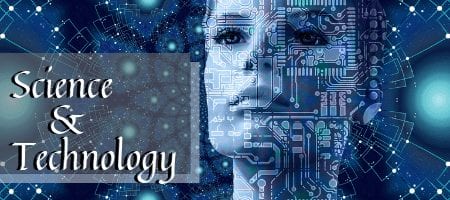AI Agriculture Boosts Soil, Crops, and Human Health
Potato study shows drone surveillance can boost natural results.
By: John Klar | March 19, 2025 | 631 Words

(Photo by: Kathy Coatney/Design Pics Editorial/Universal Images Group via Getty Images)
Artificial intelligence (AI) is now being used to monitor potato harvests and discover which soil microbes are the best for the crops. This new AI tool can also show what past and current technologies are causing problems in agriculture.
Drone-Farmed Potatoes
Researchers collected data measuring the amount of bacteria and fungi on seed potato stock, then planted the seed potatoes over a large area. As the potato crop developed, drones were used to survey 240 test fields from on high, measuring growth rates for comparison. The two sets of data – the bacteria and fungi types and prevalence and the growth rates of the plants over successive seasons – were put together using AI algorithms to determine which bacteria improved (or inhibited, as in some cases) growth.
The publication of the research results in Nature Microbiology (Dec. 27, 2024) concluded: “This study shows that seed potato vigour can be reliably predicted based on the microbiota associated with seed tuber eyes, potentially guiding future microbiome-informed breeding strategies.” Seed suppliers, biologists, and farmers have long observed variations in growth rates even where the same variety of potato is planted. Genetically identical plants often differ in size, resilience, and yield.
Measuring DNA data from bacteria and fungi in this manner has implications for future crop management, including adding bacteria to the soil or tubers or developing plants that thrive when in contact with certain soil microbes and fungi. For potatoes, some bacteria species significantly boosted growth while others had the opposite effect. This type of analysis is promising, noted the authors, because “healthier and more resilient crops mean fewer failed harvests, reduced waste, and less need for chemical pesticides. This makes farming more sustainable while boosting productivity.”
AI Benefits to Agriculture
 Much like the telescope brought the heavens into human view, drone-tracking of potatoes employs technology to confirm what organic farmers have observed for years: Microbial life strongly influences crop yields. Synthetic fertilizers that replaced time-honored manure and compost and genetic modifications of plants to increase yields are often dangerous to the natural relationships that nurture growth.
Much like the telescope brought the heavens into human view, drone-tracking of potatoes employs technology to confirm what organic farmers have observed for years: Microbial life strongly influences crop yields. Synthetic fertilizers that replaced time-honored manure and compost and genetic modifications of plants to increase yields are often dangerous to the natural relationships that nurture growth.
American poultry have been genetically selected much like plants, favoring increased production of eggs or pounds of meat generated per month. This has likely diminished traits such as immunity and long-term health, making modern birds more vulnerable to bird flu. In the case of plants, the AI potato-drone researchers predict the potential benefits of their discovery that living microbes interact symbiotically with Americans’ favorite tubers: “We could coat seed potatoes or seeds with these beneficial microbes,” said one of the researchers. “Or even engineer plants to attract and retain the ideal microbes.”
Looking for Bad With the Good?
Modern science has engineered plants that don’t function with vital fungi, and now AI proposes to create or enhance microbial relationships. Perhaps AI will also be used with drones to identify damage to soils or soil microbes caused by GMO monocultures, overtilling, or other industrial practices.
Of the various changes that have been made to agriculture using technology, AI assessments of beneficial bacteria are a positive development. Sensible employment of natural microbes to improve plant health, nutrient content, and crop yields without creating more chemicals or genetic modifications is a helpful benefit of drone and AI technology. Peering down from the sky with cameras to figure out microbial relationships in the soil is looking in the right direction.

- Researchers are now using drones and AI (artificial intelligence) to understand the benefits and drawbacks of certain crops interacting with certain microbes.
- Much of the technological advancements over the years have actually caused soil and plant health problems. AI, however, is exposing those issues and revealing solutions.
- Measuring the DNA of bacteria and other microbes in healthy plants vs unhealthy plants could show what microbes are more beneficial and drastically affect the future of farming.
















